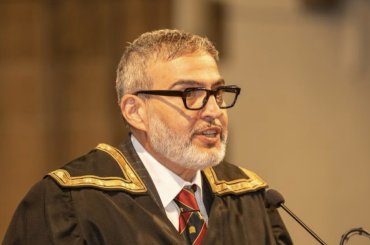Saudi Arabia has barred some 1.5 million Palestinian citizens of Israel from entering the country on temporary Jordanian passports, and thus, from performing Hajj, the pilgrimage to Mecca that is compulsory for Muslims from around the world to perform at some point in their lives.
The decision is the latest in a series of measures taken by the Kingdom limiting Palestinian pilgrims’ access to Islam’s holiest site.
In September, Palestinian refugees living in Jordan and Lebanon, along with Palestinian residents of East Jerusalem, were also banned from getting visas to Saudi Arabia.
It is estimated that the increased travel restrictions affect some 3 million Palestinians across these states, who have no access to any other form of travel documents allowing them to go to Saudi Arabia.
Saudi Arabia, like most other Arab states, does not have official diplomatic relations with Israel, meaning Israeli citizens cannot travel to Saudi Arabia
A loophole, however, established by Jordan in 1978, has allowed for Palestinian citizens of Israel to travel to Jordan to obtain temporary Jordanian passports for $70, which they then use to travel to Saudi Arabia.
The same temporary passports are used by some 350,000 Palestinians in Israeli-occupied East Jerusalem and 634,000 Palestinians living in Jordan for travel purposes.
The move does not directly affect the millions of Palestinians living in the occupied West Bank and Gaza Strip, who carry passports issued by the Palestinian Authority (PA), and can travel on those passports to Saudi Arabia.
Meanwhile, some 450,000 Palestinian refugees in Lebanon are also to be affected by the move. Middle East Eye reported that following a decision by the Saudi Foreign Ministry in Riyadh, officials from the Saudi Consulate in Beirut had informed tourism companies in Lebanon that no Hajj and Umrah visas would be issued to Palestinians on their refugee travel documents.
Palestinian refugees in Lebanon, who do not enjoy several basic rights and are prohibited from working in as many as 20 professions, hold refugee travel documents issued by the Lebanese government, and do not have access to any other form of travel documents allowing them to go to Saudi Arabia.
The latest Saudi move comes against the backdrop of increasingly normalized relations between Israel, Saudi Arabia, and other Gulf states.
A report last week by the Washington Post claimed that Israeli Prime Minister Benjamin Netanyahu asked senior officials in the Trump White House to continue supporting Saudi Crown Prince Mohammad bin Salman following the murder of Saudi journalist Jamal Khashoggi.
Speaking at a forum in Bulgaria, Netanyahu said “what happened in the Istanbul consulate was horrendous and it should be duly dealt with. Yet at the same time I say it, it is very important for the stability of the world, for the region and for the world, that Saudi Arabia remain stable.”
In April of this year, Saudi Crown Prince Mohammed Bin Salman said Israelis “have the right to have their own land” and that formal relations between Israel and the kingdom could be mutually beneficial.
The softened rhetoric of the two leaders towards each other, coupled with claims that Trump’s senior advisor and son-in-law Jared Kushner has been working to encourage an alliance between Israel and Saudi Arabia, has led critics to believe the new Saudi policy against holders of temporary Jordanian passports is part of a larger effort between the Kingdom and Israel “to put an end to the “Palestinian identity and the right of return for refugees.”
Middle East Eye quoted an anonymous Jordanian source as saying that “Saudi Arabia is pressuring Jordan to naturalise the Palestinian refugees in Jordan, Palestinians in East Jerusalem, and now Palestinians in Israel. The same could happen in Lebanon. Then, you will not have a Palestinian refugees problem.”
While there have been no confirmations of such an agreement, it would fall in line with the policies of both Trump and Netanyahu administrations targeting Palestinian refugees and UNRWA, the agency responsible for providing humanitarian assistance to more than 5 million registered Palestinian refugees in the region.
Both Netanyahu and Trump have criticized UNRWA for the way it counts refugees, and for “perpetuating” the issue of Palestinian refugees.



I thought most Palestinians resident in Jordan held Jordanian citizenship, something which distinguishes them from Palestinian refugees elsewhere in the region?
In any case, it’s entirely unsurprising that the clown prince should take a step like this in their continuing drive to please Israel and by that token, further ingratiate themselves with the Washington elite. Keep this up, and even the WP will soon cease their ‘campaign’ about their own journalist.
This goes against all tenets of Islam. To prevent Muslims from performing Haj, is mean, and discriminatory, especially when the nation blocking them from performing their religious obligations, is best buddies now with those that occupy their people. Butcher Bibi must be special advisor to Killer Salman. Imagine the outrage had 3 million Jews or Christian been prevented from performing their pilgrimage. There is always away around it, if Salman, wanted to help his fellow Muslims, but I guess he is busy covering up a certain crime in Turkey.
I expect that God told MBS that he refused to accept temporary passports. Quite understandable given all the other little local difficulties that he has on his hands at the present time.
What will this do to Saudi Arabia’s status as the guardian of the holy places? What is MBS thinking? Well, he’s probably thinking that it shows how powerful he is, and so it does, if power equals the ability – always temporary – to force people to do what you want.
I thought the hajj was compulsory only for Moslems who are able to undertake it. There is no sin in not going if you are prevented by illness, poverty, or family obligations — or if Saudi Arabia won’t allow you into the country.